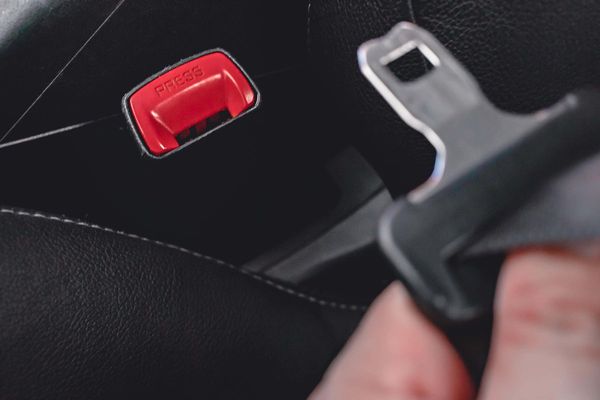
Signature Bank in New York, whose collapse in March ranked as the third largest failure in the U.S., was caused by poor management, the FDIC said on Friday.
"SBNY’s board of directors and management pursued rapid, unrestrained growth without developing and maintaining adequate risk management practices and controls appropriate for the size, complexity and risk profile of the institution," the federal regulator said in a report that was overseen by FDIC Chief Risk Officer and Deputy Director Division of Finance Marshall Gentry.
DON'T MISS: SVB Collapse: How Bank Failures Impact Your Money
The bank's management ignored several red flags that were brought up by the FDIC and failed to "prioritize good corporate governance practices, did not always heed FDIC examiner concerns, and was not always responsive or timely in addressing FDIC supervisory recommendations (SRs)."
Signature Bank relied too much on growing the bank by accumulating uninsured deposits without "implementing fundamental liquidity risk management practices and controls."
The bank also did not understand the risks that come from taking deposits from cryptocurrency companies.
"Additionally, SBNY failed to understand the risk of its association with and reliance on crypto industry deposits or its vulnerability to contagion from crypto industry turmoil that occurred in late 2022 and into 2023," the FDIC report said.
The 40 branches of Signature Bank were acquired by Flagstar Bank, a subsidiary of New York Community Bancorp on March 19.
The New York bank was taken over by a federal regulator on March 12 after the New York State Department of Financial Services closed it, only two days after Silicon Valley Bank was shut down by the FDIC.
Rapid Withdrawals of Deposits from Signature and Silicon Valley Bank
The failure of Silicon Valley Bank and self-liquidation of Silvergate Bank, La Jolla, California resulted in contagion and the rapid withdrawal of deposits from Signature Bank, resulting in massive deposit runs.
"The weekend of March 10, 2023, was unprecedented," the FDIC said. "The speed with which depositors withdrew funds from SBNY and SVB was unexpected and surprised the regulators and the banking industry. The coincidence of these two failures and their unprecedented speed may lead to changes in regulation and supervision and reevaluating liquidity risk management."
But the FDIC said their role as bank supervisors is to promote financial stability, not to "prevent bank failures."
Signature Bank's Rapid Growth Was Problematic
The rapid growth of deposits at Signature Bank was problematic, the FDIC said.
Signature was the 29th largest bank in the U.S. and the bank’s main businesses were commercial real estate (CRE) and commercial and industrial (C&I) lending that were funded through uninsured deposits generated from mid-sized commercial companies. The bank had total deposits of $88.6 billion and total assets of $110.4 billion as of December 31, 2022.
By 2018, Signature expanded into the private equity industry and added a digital assets banking group to collect deposits of deposits and maintain operating accounts for several digital asset-related businesses.
The bank's board and management sought a strategy of rapid growth which resulted in total assets increasing by 175% from the end of 2017 or $43.1 billion to the end of 2021 or $118.4 billion before declining to $110.4 billion at the end of 2022.
The U.S. Government Accountability Office (GAO) reported in April 2023 that Signature Bank grew "significantly faster" compared to its peer banks from 2019 through 2021.
Signature Bank's deposits rose by 134% while its peer banks increased them by 33%.
The GAO concluded that rapid growth can be an indicator of risk and said that regulators are "concerned with whether a bank’s risk management practices can maintain pace with rapid growth."
But as interest rates increased in 2022, deposits started to wane because of the volatility in the digital assets market and “significant” outflows of deposits from digital assets began.
The FDIC estimated that as of March 19 the failure to the Deposit Insurance Fund (DIF) was approximately $2.5 billion. The exact cost will be determined when the FDIC terminates the receivership.
Signature Bank should have been "more measured in its growth, implemented appropriate risk management practices, and been more responsive to the FDIC’s supervisory concerns, and the FDIC could have been more forward-looking and forceful in its supervision."
Rating Downgraded Should Have Occurred Sooner
The FDIC admitted that Signature Bank's CAMELS rating should have been downgraded much sooner due to its weakness in controlling liquidity, the bank's unrestrained growth and management’s slow response to address findings.
"It would have been prudent to downgrade the Management component rating to '3,' (i.e., needs improvement) as early as the second half of 2021," the FDIC report said. "Doing so would have been consistent with RMS’ forward-looking supervision concept, likely lowered SBNY’s Composite rating, and supported consideration of an enforcement action."
The FDIC also blamed Signature Bank's board and management for not communicating quickly and said it was "often not timely."
Gentry declined to discuss about how to prevent other bank failures and also mentioned the low staffing levels of the bank.
"The Dedicated Team experienced frequent vacancies and continuous turnover during our period of review (i.e., 2017 through March 2023)," the FDIC said.
Get investment guidance from trusted portfolio managers without the management fees. Sign up for Action Alerts PLUS now.







